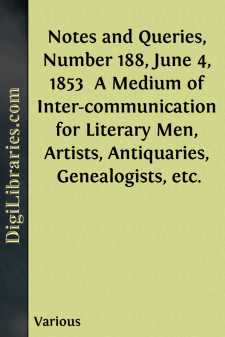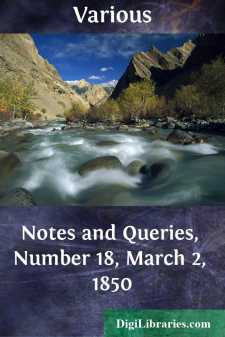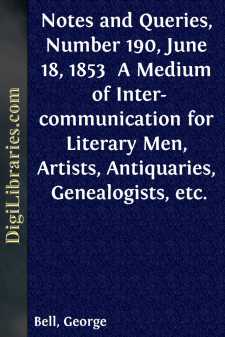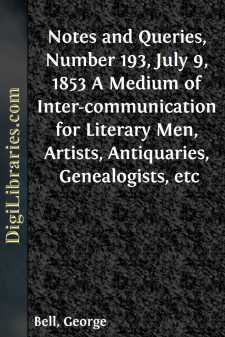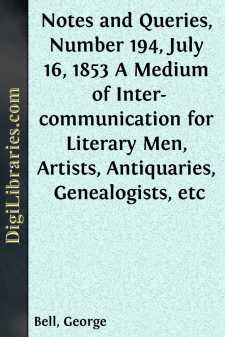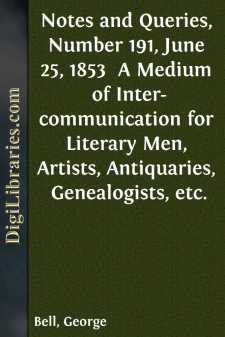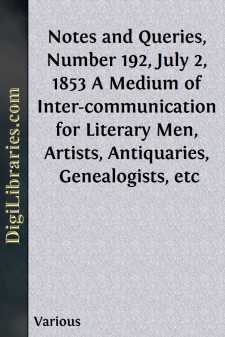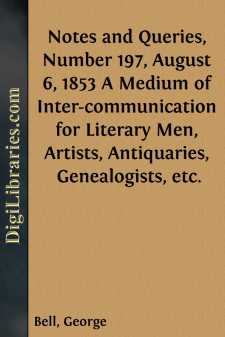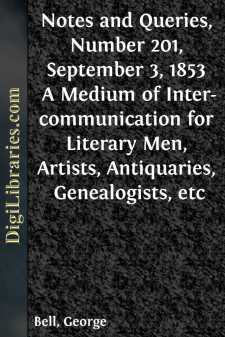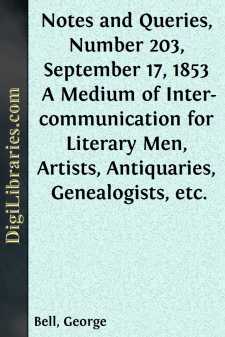Categories
- Antiques & Collectibles 13
- Architecture 36
- Art 48
- Bibles 22
- Biography & Autobiography 816
- Body, Mind & Spirit 145
- Business & Economics 28
- Children's Books 17
- Children's Fiction 14
- Computers 4
- Cooking 94
- Crafts & Hobbies 4
- Drama 346
- Education 58
- Family & Relationships 59
- Fiction 11834
- Foreign Language Study 3
- Games 19
- Gardening 17
- Health & Fitness 34
- History 1378
- House & Home 1
- Humor 147
- Juvenile Fiction 1873
- Juvenile Nonfiction 202
- Language Arts & Disciplines 89
- Law 16
- Literary Collections 686
- Literary Criticism 179
- Mathematics 13
- Medical 41
- Music 40
- Nature 179
- Non-Classifiable 1768
- Performing Arts 7
- Periodicals 1453
- Philosophy 66
- Photography 2
- Poetry 897
- Political Science 203
- Psychology 45
- Reference 154
- Religion 516
- Science 126
- Self-Help 85
- Social Science 82
- Sports & Recreation 34
- Study Aids 3
- Technology & Engineering 59
- Transportation 23
- Travel 463
- True Crime 29
Sort by:
by:
Various
NOTES ON SEVERAL MISUNDERSTOOD WORDS. (Continued from p. 522.) Dare, to lurk, or cause to lurk; used both transitively and intransitively. Apparently the root of dark and dearn. "Here, quod he, it ought ynough suffice, Five houres for to slepe upon a night: But it were for an olde appalled wight, As ben thise wedded men, that lie and dare, As in a fourme sitteth a wery hare." Tyrwhitt's...
more...
by:
Various
NOTES UNPUBLISHED LETTER OF HORACE WALPOLE I have the pleasure of inclosing to you (I believe) an unpublished letter of Horace Walpole's. It was found among the papers of the late William Parsons, one of the Della Cruscan poets. That it is genuine I have no doubt. The handwriting is precisely similar to a note sent with a copy of the Mysterious Mother to Mr. Parsons, in which Horace Walpole...
more...
by:
George Bell
ON THE USE OF THE HOUR-GLASS IN PULPITS. George Herbert says: "The parson exceeds not an hour in preaching, because all ages have thought that a competency."—A Priest to the Temple, p. 28. Ferrarius, De Ritu Concion., lib. i. c. 34., makes the following statement: "Huic igitur certo ac communi malo (the evil of too long sermons) ut medicinam facerent, Ecclesiæ patres in concionando...
more...
by:
George Bell
THE EYE: ITS PRIMARY IDEA. I do not remember to have remarked that any writer notices how uniformly, in almost all languages, the same primary idea has been attached to the eye. This universal consent is the more remarkable, inasmuch as the connexion in question, though of course most appropriate and significant in itself, hardly seems to indicate the most prominent characteristic, or what we should...
more...
by:
George Bell
DERIVATION OF THE WORD "ISLAND." Lexicographers from time to time have handed down to us, and proposed for our choice, two derivations of our English word Island; and, that one of these two is correct, has, I believe, never yet been called in question. The first which they offer, and that most usually accepted as the true one, is the A.-S. Ealand, Ealond, Igland; Belg. Eylandt: the first...
more...
by:
George Bell
WITCHCRAFT IN SOMERSETSHIRE. Perhaps the following account of superstitions now entertained in some parts of Somersetshire, will be interesting to the inquirers into the history of witchcraft. I was lately informed by a member of my congregation that two children living near his house were bewitched. I made inquiries into the matter, and found that witchcraft is by far less uncommon than I had...
more...
by:
Various
OBLATION OF A WHITE BULL. By lease dated 28th April, 1533, the Abbat of St. Edmund's Bury demised to John Wright, glazier, and John Anable, pewterer, of Bury, the manor of Haberdon appurtenant to the office of Sacrist in that monastery, with four acres in the Vynefeld, for twenty years, at the rent of 5l. 4s. to the Sacrist; the tenants also to find a white bull every year of their term, as often...
more...
by:
George Bell
HIGH CHURCH AND LOW CHURCH. A Universal History of Party; with the Origin of Party Names would form an acceptable addition to literary history: "N. & Q." has contributed towards such a work some disquisitions on our party namesWhigandTory, andThe Good Old Cause. Such names asPuritan,Malignant,Evangelical, can be traced up to their first commencement, but some obscurity hangs on the...
more...
by:
George Bell
"THAT SWINNEY." Junius thus wrote to H. S. Woodfall in a private note, to which Dr. Good has affixed the date July 21st, 1769 (vol. i. p. 174.*) "That Swinney is a wretched but dangerous fool. He had the impudence to go to Lord G. Sackville, whom he had never spoken to, and to ask him whether or no he was the author of Junius: take care of him." This paragraph has given rise to a great...
more...
by:
George Bell
OUR SHAKSPEARIAN CORRESPONDENCE. We have received from a valued and kind correspondent (not one of those emphatically good-natured friends so wittily described by Sheridan) the following temperate remonstrance against the tone which has distinguished several of our recent articles on Shakspeare:— Shakspeare Suggestions (Vol. viii., pp. 124. 169.).— "Most busy, when least I do." I am...
more...


